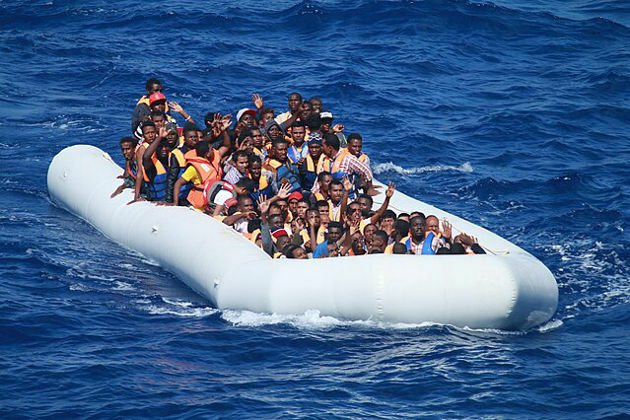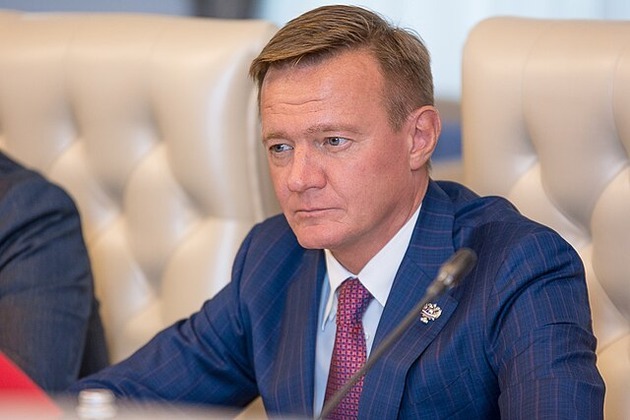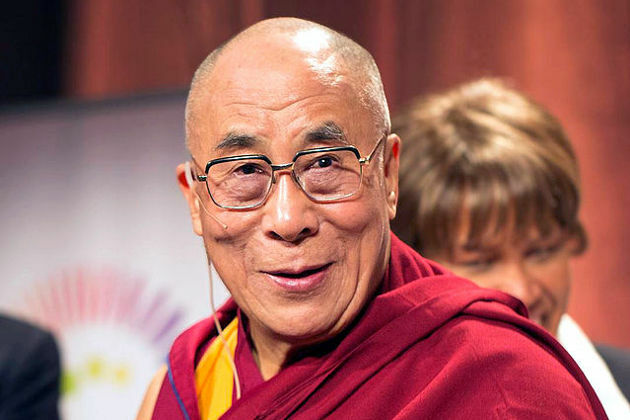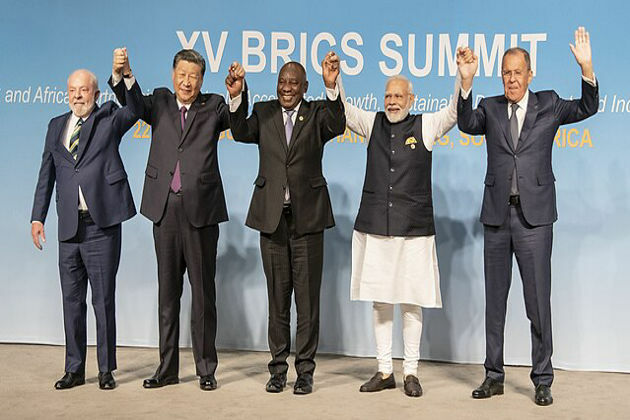Why we should stop using acronyms like BIPOC
The Conversation
22 Sep 2023, 02:08 GMT+10
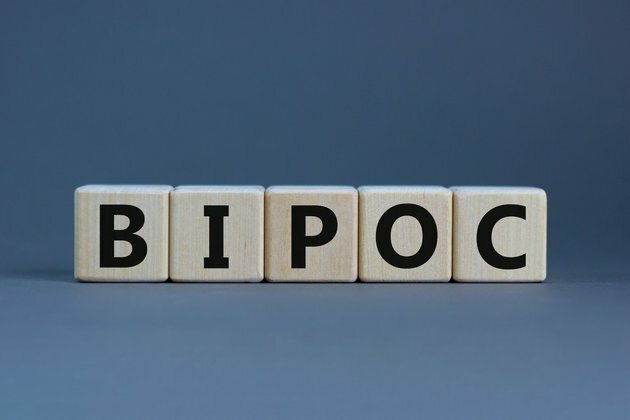
When I first heard the acronym BIPOC, my stomach tightened and I immediately felt resistance. It was a gut reaction at having my identities seemingly collapsed into an acronym.
Exploring this discomfort, I read an article by American author Kearie Daniel. She shared similar unease from her perspective as a Black woman. Reading Daniel's words, I knew I was not alone in my reaction to the abbreviation.
BIPOC is an acronym for "Black, Indigenous and People of Colour," and has become increasingly popular in recent years. The acronym came about as a way to address the erasure of Black and Indigenous Peoples and centre their unique struggles while promoting solidarity.
However, the problem is BIPOC amalgamates distinct experiences of racism and colonialism and misses those that do not fit within one category, like individuals of mixed ancestry.
What's in an acronym?
Acronyms like POC, BIPOC, IBPOC, BAME, AAPI and others can highlight the similar ways racism, colonialism and inequality impact different communities. However, they can also undermine and gloss over the distinct experiences of those who do not easily fit into one of those letters.
Observed race can shift based on context, clothing and appearance. For instance, if I show my tattoos or wear clothing with Haida designs, I am more likely to be seen as broadly Indigenous. Based on my appearance, I might be vaguely classified as a person of colour, however, I am also white. Instead of being Haida, Irish, Ojibwe and British, my identities are collapsed into an acronym for ease of reference.
Indigenous identity: contestation and self-determination
Indigenous Peoples have long been subject to identity control through legislated elimination in the Indian Act and categorized as non-status versus status Indian, Inuit or Metis.
Our Nations have been identified as one group (Aboriginal, Native, First Nations, First Peoples, Indian, Indigenous) to facilitate colonial control, and the BIPOC acronym contributes to the further grouping of distinct identities.
Being Indigenous in Canada involves continually pushing for our self-determination and inherent rights to be recognized while ensuring our survival as distinct nations. Acronyms like BIPOC represent a step back in the struggle to assert and sustain nationhood.
Oppression Olympics
Scholars have argued that Indigenous and Black liberation movements are interconnected, and the possibility of coalition-building increases the chances for racial justice.
However, despite the intentions of those who use BIPOC, the combination of these experiences can have the opposite effect and contribute to a sort of oppression Olympics.
For example, some organizations and news outlets have more recently switched the order of the acronym to IBPOC (Indigenous, Black and people of colour) to recognize Indigenous Peoples as First Peoples. This Indigenous first acronym is an inadequate solution. It still results in racialized people being broadly categorized and essentialized.
Furthermore, these kinds of debates over the order of letters can also disrupt coalition-building among racialized people. American activists Angela Davis and Elizabeth Martinez suggest that competition between racialized peoples, or the oppression Olympics, perpetuates harm and division.
This kind of debate further reinforces white supremacy and settler colonialism that rely on the continued marginalization of racialized peoples.
Indigenous Peoples are in a place of contestation over lands, rights, self-determination and reparation. Being amalgamated further into acronyms distracts attention from our work towards self-determination. Rather than accepting the convenient terminology of BIPOC, IBPOC, First Nations, Indigenous or Aboriginal, we need to assert our Nationhood and unique identities.
So, what should we call people?
When discussing individuals, use the terms they use to identify themselves where possible and do not assume someone fits within a predetermined category. Many people occupy the space in between racialized categorizations. If a broad term is required, "racialized" is much more appropriate. It includes recognition of the socially constructed nature of race and allows room for further specificity.
The terminology that we use has real-world impacts. Racial justice requires recognizing the distinct and socially situated identities of racialized people and providing space for those with diverse identities.
The right of Indigenous self-determination is asserted and affirmed in the United Nations Declaration on the Rights of Indigenous Peoples. To protect our identities as distinct Nations, we must be cautious of the language we use to describe ourselves and others use to describe us.
Author: Michaela M. McGuire - PhD Candidate, School of Criminology, Simon Fraser University 
 Share
Share
 Tweet
Tweet
 Share
Share
 Flip
Flip
 Email
Email
Watch latest videos
Subscribe and Follow
Get a daily dose of Massachusetts Sun news through our daily email, its complimentary and keeps you fully up to date with world and business news as well.
News RELEASES
Publish news of your business, community or sports group, personnel appointments, major event and more by submitting a news release to Massachusetts Sun.
More InformationInternational
SectionTravelers can now keep shoes on at TSA checkpoints
WASHINGTON, D.C.: Travelers at U.S. airports will no longer need to remove their shoes during security screenings, Department of Homeland...
Rubio impersonator used AI to reach officials via Signal: cable
WASHINGTON, D.C.: An elaborate impersonation scheme involving artificial intelligence targeted senior U.S. and foreign officials in...
Warsaw responds to migration pressure with new border controls
SLUBICE, Poland: Poland reinstated border controls with Germany and Lithuania on July 7, following Germany's earlier reintroduction...
Deadly July 4 flash floods renew alarm over NWS staffing shortages
WASHINGTON, D.C.: After months of warnings from former federal officials and weather experts, the deadly flash floods that struck the...
Putin fires transport chief, later found dead in suspected suicide
MOSCOW, Russia: Just hours after his sudden dismissal by President Vladimir Putin, Russia's former transport minister, Roman Starovoit,...
Thousands gather in Himalayas as Dalai Lama celebrates 90th birthday
DHARAMSHALA, India: The Dalai Lama turned 90 on July 6, celebrated by thousands of followers in the Himalayan town of Dharamshala,...
Business
SectionGold ETF inflows hit 5-year high as tariffs drive safe-haven bets
LONDON, U.K.: Physically backed gold exchange-traded funds recorded their most significant semi-annual inflow since the first half...
PwC: Copper shortages may disrupt 32 percent of chip output by 2035
AMSTERDAM, Netherlands: Some 32 percent of global semiconductor production could face climate change-related copper supply disruptions...
U.S. stocks recover after Trump-tariffs-induced slump
NEW YORK, New York - U.S. stocks rebounded Tuesday with all the major indices gaining ground. Markets in the UK, Europe and Canada...
Stocks slide as Trump unveils 25% tariffs on Japan, S. Korea
NEW YORK CITY, New York: Financial markets kicked off the week on a cautious note as President Donald Trump rolled out a fresh round...
BRICS issues rebuke on trade and Iran, avoids direct US criticism
RIO DE JANEIRO, Brazil: At a two-day summit over the weekend, the BRICS bloc of emerging economies issued a joint declaration condemning...
BP appoints ex-Shell finance chief Simon Henry to board
LONDON, U.K.: This week, BP appointed Simon Henry, former Shell finance chief, to its board as a non-executive director effective September...




